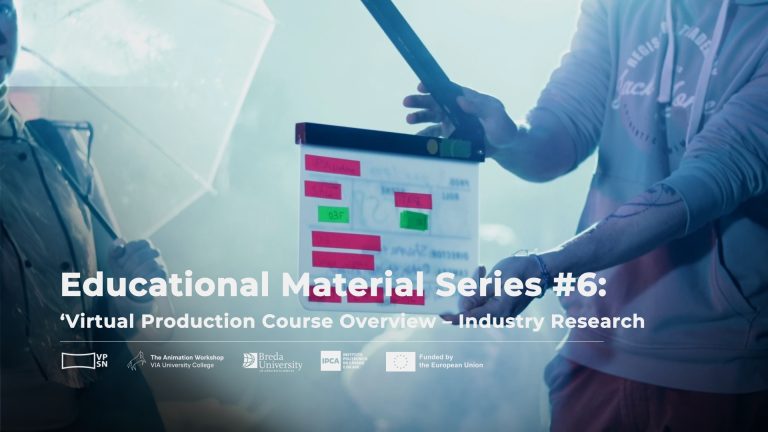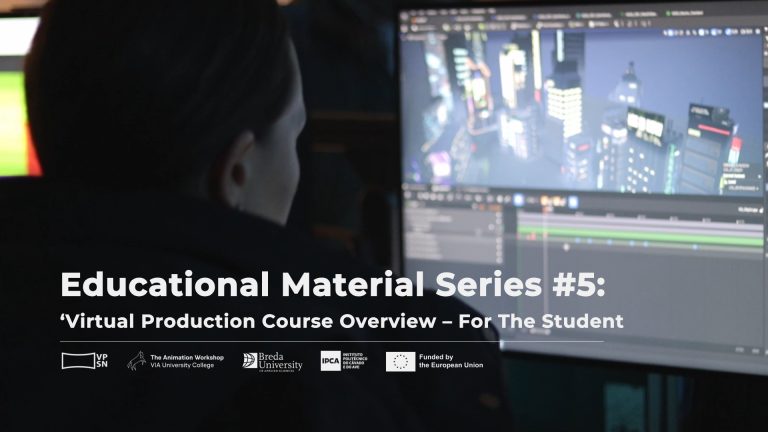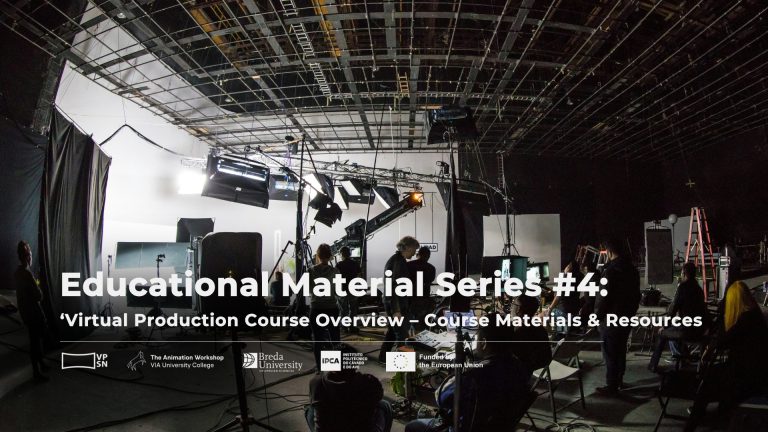Introducing the VPSN Virtual Production Course Material
Welcome to the first article in our web series on the Virtual Production Studio Network (VPSN) course material!
This series will provide detailed insights into the course, give an overview, dissect virtual production relevance, and show how it can benefit educators, students, and industry professionals.
What’s in it for me?
The course overview document provided in this article, along with upcoming topic spotlights, is part of an educational package available on the VPSN website. These articles offer a broad introduction to the topics covered in the course, highlighting the value and relevance of virtual production.
Whether you’re an educator looking to innovate your curriculum, a student eager to learn the latest in digital media, or an industry professional seeking to understand the future of filmmaking, this course material offers valuable knowledge and practical experience. You’ll gain technical proficiency in virtual production, develop creative skills, and benefit from collaborative experiences and industry insights.
Who is it for?
- Educators: Enhance your teachings or curriculum with the latest insights into virtual production technology and prepare your students for the future of media production.
- Students: Gain a competitive edge in the rapidly evolving digital media industry.
- Industry Professionals: Understand the technical and creative aspects of virtual production in practice to stay ahead in your field.
Key Components of the VP Course
The VPSN course material is part of a larger educational package designed to provide a comprehensive understanding of virtual production. This first article offers an overview of the collective course material, which serves as the foundation for more detailed explorations in subsequent articles.
Engaging With Virtual production: Course Requirements
- Prerequisites: Basic understanding of film production, Unreal Engine, and virtual lighting. Collaborative skills and creativity are essential.
- Situational Factors: Designed for small class sizes, ensuring personalized attention and hands-on learning experiences.
Course ILOs and Assessment
- Intended Learning Objectives (ILOs): Develop students’ ability to produce virtual production films, compare traditional and virtual production methods, reflect on their learning, and establish professional relationships.
- Assessment Rubric: Detailed criteria for evaluating students’ performance, including production and learning logs, peer assessments, and overall contributions.
Course Lecture Materials
- Lecture Slide Decks: Weekly lectures cover topics such as the basics of virtual production, Unreal Engine, camera tracking, lighting, and more. Each week builds on the previous one to develop comprehensive virtual production skills.
Week by Week Overview
- Structured progression of learning, with each week focusing on different aspects of virtual production. This includes workshops, independent study, and practical sessions.
Resources
- A variety of resources to support the course, including online learning platforms, video tutorials, books, and templates for production documents.
Project Brief: for the Students
- Course Description: Prepares students for the virtual production industry through hands-on workshops, studio time, and independent study.
- Assessment Deliverables: Students are expected to produce a range of deliverables, including a production bible, short film, learning log, and peer assessments.
Industry Research
- Insights from a survey of virtual production professionals, highlighting the skills and knowledge gaps in recent graduates and the essential skills needed in the industry.
Explore More Topics
This article is part of a series that will delve deeper into various aspects of the VPSN course. Stay tuned for upcoming articles on:
- For Educators: Why this course is relevant to education and how it can be integrated into your curriculum.
- Learning Objectives: The underlying motives behind the course’s learning objectives.
- Course Materials & Resources: An overview of the available lecture materials and resources included in the course.
- For Students: Why this course is essential for budding professionals in the creative, digital, and visual industries.
- Industry Research: The importance of diving deeper into virtual production as an academic and teaching topic.
Whether you’re an educator, student, or industry professional, the VPSN course is your gateway to the future of filmmaking. Stay tuned for more articles in this series!
About VPSN
The VPSN project is an Erasmus+ initiative, collaboratively developed by three partners: The Animation Workshop/VIA University College, Breda University of Applied Sciences, and the Polytechnic Institute of Cávado and Ave. This partnership aims to create educational materials and frameworks for other educators and students, leveraging Breda University’s extensive experience in virtual production. By sharing this knowledge, the VPSN project seeks to support the European industry and educational field, particularly those interested in virtual production as an emergent technology.



